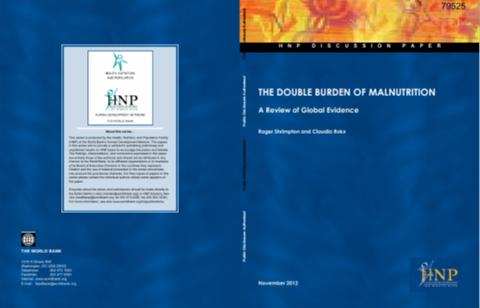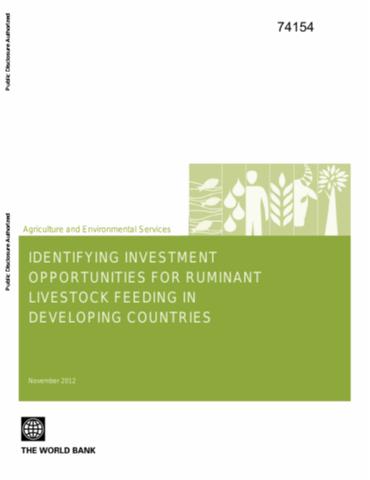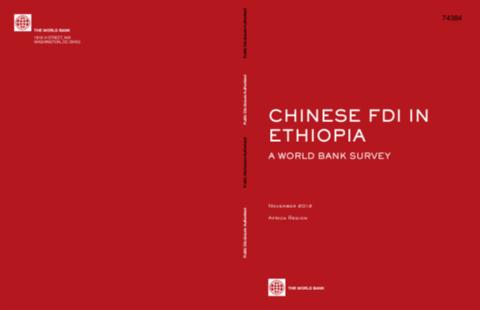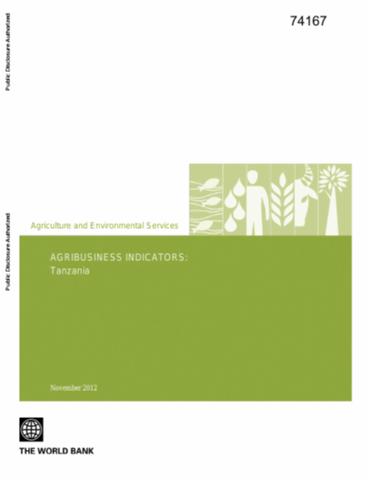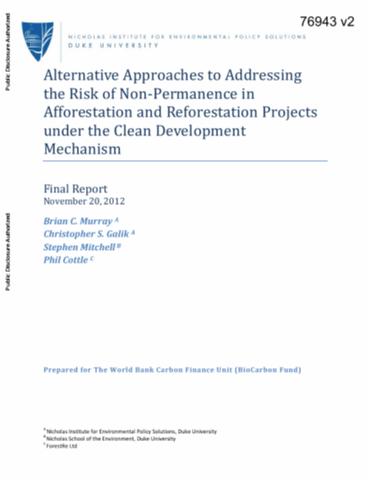The World Bank is a vital source of financial and technical assistance to developing countries around the world. We are not a bank in the ordinary sense but a unique partnership to reduce poverty and support development. The World Bank Group has two ambitious goals: End extreme poverty within a generation and boost shared prosperity.
- To end extreme poverty, the Bank's goal is to decrease the percentage of people living on less than $1.25 a day to no more than 3% by 2030.
- To promote shared prosperity, the goal is to promote income growth of the bottom 40% of the population in each country.
The World Bank Group comprises five institutions managed by their member countries.
The World Bank Group and Land: Working to protect the rights of existing land users and to help secure benefits for smallholder farmers
The World Bank (IBRD and IDA) interacts primarily with governments to increase agricultural productivity, strengthen land tenure policies and improve land governance. More than 90% of the World Bank’s agriculture portfolio focuses on the productivity and access to markets by small holder farmers. Ten percent of our projects focus on the governance of land tenure.
Similarly, investments by the International Finance Corporation (IFC), the World Bank Group’s private sector arm, including those in larger scale enterprises, overwhelmingly support smallholder farmers through improved access to finance, inputs and markets, and as direct suppliers. IFC invests in environmentally and socially sustainable private enterprises in all parts of the value chain (inputs such as irrigation and fertilizers, primary production, processing, transport and storage, traders, and risk management facilities including weather/crop insurance, warehouse financing, etc
For more information, visit the World Bank Group and land and food security (https://www.worldbank.org/en/topic/agriculture/brief/land-and-food-security1
Resources
Displaying 3071 - 3075 of 4907The Double Burden of Malnutrition
The Double Burden of Malnutrition (DBM) is the coexistence of both under nutrition and over nutrition in the same population across the life course. 'Across the life course' refers to the phenomenon that under nutrition early in life contributes to an increased propensity for over nutrition in adulthood. The DBM affects all countries, rich and poor, and is a particular concern in countries with high stunting rates. The consequences of the DBM are enormous; early life under nutrition is an underlying cause associated with about a third of young child deaths.
Identifying Investment Opportunities for Ruminant Livestock Feeding in Developing Countries
In the future scenario for livestock development, there is a continuing role for smallholder producers, particular for dairy and small ruminants, relying heavily on grass and crop-residues, however in a growth mode, intensifying production, and enhancing the efficiency of resource use (less land, labor and feed resources per unit product). In particular improving the efficiency of converting feed into milk and meat will be critical to increase their income.
Chinese FDI in Ethiopia
Chinese Foreign Direct Investment (FDI) into Africa is on the rise and Ethiopia is at the forefront of this trend. On request of the Government, the World Bank surveyed 69 Chinese enterprises doing business in Ethiopia with a 95-question survey in May/June 2012. The survey covered various aspects of the foreign direct investment climate in Ethiopia, including infrastructure, sales and supplies, land, crime, competition, finance, human resources, and questions about general opportunities and constraints for doing business in Ethiopia.
Agribusiness Indicators
Agriculture in Tanzania accounts for 28 percent of the country's Gross Domestic Product (GDP) and employs 80 percent of its labor force. The sector is also an important source of export revenues. The data and findings presented in this report provide a summary of the performance of the agriculture sector in Tanzania using a set of indicators covering six areas.
Alternative Approaches to Addressing the Risk of Non-Permanence in Afforestation and Reforestation Projects under the Clean Development Mechanism
The report provides quantitative and qualitative insights into the performance of different non-permanence approaches for consideration of parties. This note summarizes the results of the analysis presented in the report. Besides the existing mechanism for temporary crediting, the study analyzed a range of alternative approaches to addressing non-permanence, including those considered in prior deliberations of the United Nations Framework Convention on Climate Change (UNFCCC). The approaches address the risk of non-permanence in several ways.






